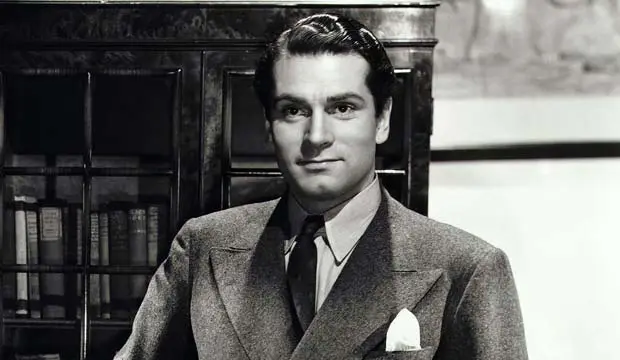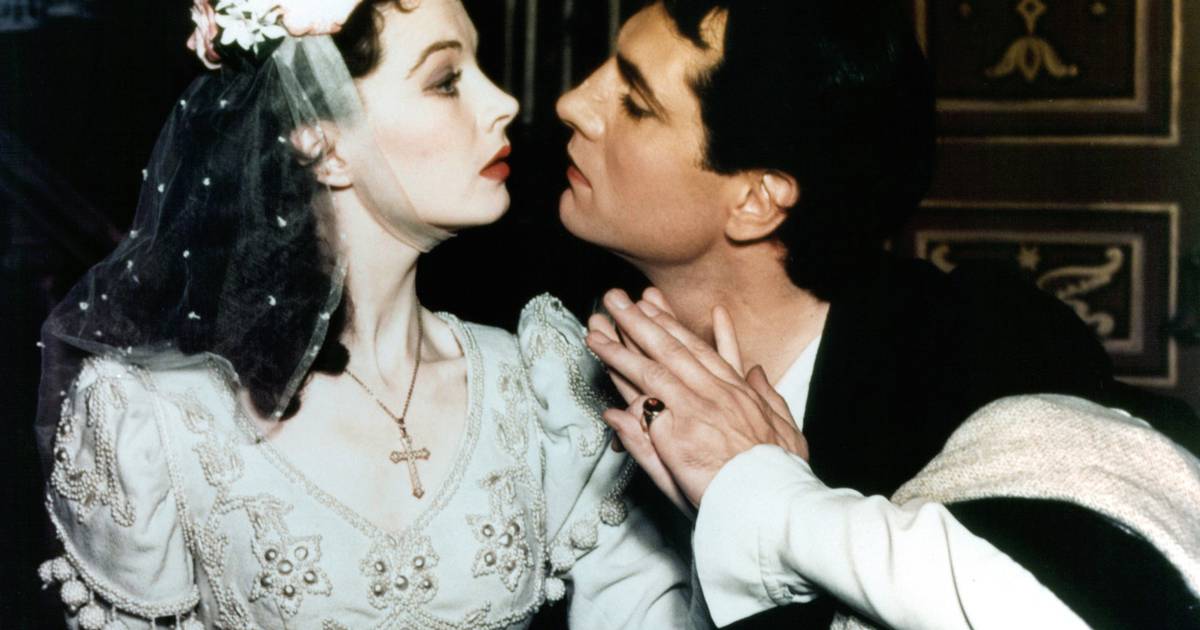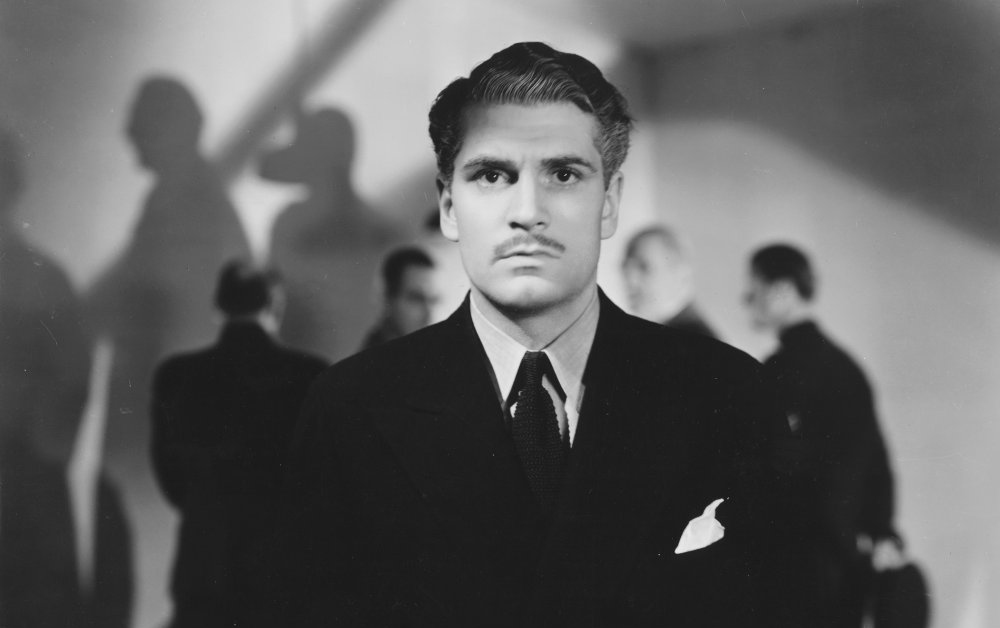Laurence Olivier Net Worth - $20 Million, The Most Shining Star Of The English Stage
An English actor, director, and producer , Laurence Olivier net worth is $20 million fortune. In Dorking, England, on May 22, 1907, Laurence Olivier was born. One of the best performers of the 20th century was Laurence Olivier.
Author:Alex MercerReviewer:Nathanial BlackwoodJul 11, 202210 Shares801 Views

In Dorking, England, on May 22, 1907, Laurence Olivier was born. One of the best performers of the 20th century was Laurence Olivier.
Despite being located in England, Olivier produced a sizable amount of Hollywood movies.
Quick Facts About Laurence Olivier
| Name | Laurence Olivier |
| Date Of Birth | May 22, 1907 - Jul 11, 1989 (82 years old) |
| Gender | Male |
| Height | 5 ft 10 in (1.78 m) |
| Nationality | United Kingdom |
| Profession | Actor, Film Producer, Film director, Screenwriter, Television producer, Voice Actor |
| Net Worth | $20 Million |
Career And Personal Life
Personal Life
The conservative religious household in which Laurence Kerr Olivier was raised welcomed him into the world on May 22, 1907, in Dorking, Southern England.
His mother also hailed from a family of professional clergy, but she was his haven in his father's austere home. His father and grandparents were also important Anglican church members.
When he was 15, All Saints Choir School hosted his acting debut. He played parts from Shakespeare and other great actorswhile he was learning.
The American film industry first took notice of Olivier when he joined The Birmingham Repertory company in 1926 and later performed on Broadway.
An aspiring actress named Vivien Leigh was drawn to Olivier by his dazzling good looks, and they quickly started a passionate relationship after ending their previous marriages. His first kid, Tarquin, was born while he was still married to the actress Jill Esmond.
Career
Twelve times he was nominated for Academy Awards as an actor, producer, or director; he won two of them.
He also received two special Oscars. Olivier played in more than 120 theatrical performances, close to 60 motion pictures, and more than 15 television shows.
Before joining the Birmingham Repertory Company, an established theater company, Olivier attended the Central School of Speech and Drama.
He swiftly moved to London's West End and transitioned from spear bearer to leading man.
When Olivier and Leigh were married in 1940, they were already established as members of London theatrical aristocracy thanks to their performances in several of Shakespeare's principal roles, including Hamlet, Henry V, Anthony, Richard III, Macbeth, and Othello.
Although his early film projects were a failure, Olivier gained success as Heathcliff in Wuthering Heights and Rebecca, which propelled him to matinée star status and enabled him to finance his theatrical endeavors.
Additionally, he transformed some of Shakespeare's most well-known characters into motion pictures, earning him a nomination for best director and his first Academy Award for best actor in a major role for Hamlet.
Earnings From Plays And Movies
With parts like the Nazi dentist in Marathon Man, which received critical praise, Olivier went on to restore his image. The Academy gave him a Lifetime Achievement Award in 1979.
Clash Of The Titans (1981)
The silly action epic "Clash of the Titans" follows Perseus (Harry Hamlin) as he works with his father Zeus and the Olympian gods to save Princess Andromeda (Judi Bowker). The film also has a genuinely amazing animatronic owl (Olivier).
| Domestic Box Office | $30,000,000 |
| International Box Office | $14,400,000 |
| Worldwide Box Office | $44,400,000 |
Spartacus (1960)
Kirk Douglas plays a gladiator in "Spartacus," one of the greatest blockbusters of the early 1960s, who battles for his freedom and eventually leads a slave insurrection that would rock the Roman Republic to its very foundation.
But Spartacus would be nothing without a foe, and Laurence Olivier serves as that foe. He portrays Crassus, a ruthless and ambitious Roman senator who has no qualms about ordering the brutal crucifixion of a number of victims.
He dreads Spartacus and hates him at the same time because he fears losing his high social status and is intimidated by his ability to win over men.
| Domestic Box Office | $30,000,000 |
| International Box Office | $30,000,000 |
| Worldwide Box Office | $60,000,000 |
Rebecca (1940)
Based on the Daphne du Maurier book, the Daphne du Maurier adaptation "Rebecca" stars Joan Fontaine as a young, naive woman who falls in love with the melancholy but attractive Maxim De Winter (Laurence Olivier) while helping to look after an old widow on vacation in Monte Carlo.
A short period of happiness follows their marriage, but the ghost of Mrs. De Winter is not so easily forgotten.
By balancing his chilly treatment of his new wife with the reality that he genuinely does love her, Olivier gives a moody, emotionally repressed performance that enables us to believe both at once.
Oliver received his second Oscar nomination in as many years for best actor when "Rebecca" won the Academy Award for best film in 1941.
| Domestic Box Office | $6,000,000 |
| International Box Office | $2,370 |
| Worldwide Box Office | $6,002,370 |
Romeo And Juliet (1968)
33-year-old Laurence Olivier portrayed Romeo. 26-year-old Vivian Leigh was Juliet. These two actors were lovers. Both were awkwardly wed to different people.
Four years previously, after Leigh's stage debut in the play "The Mask of Virtue," Olivier dropped by her dressing room, the two had their first encounter in London.
Leigh had a little kid at the time and was wed to a lawyer called Herbert Leigh Holman.
Olivier, who was already a major celebrity, was wed to Jill Esmond. Numerous stories (including that of Leigh's biographer) indicate that the two fell in love right away.
But given that Tarquin was also a child of Olivier and Esmond, it was problematic, and the pair had to be subtle.
| Domestic Box Office | $38,901,218 |
| International Box Office | $6,429 |
| Worldwide Box Office | $38,907,647 |
Networth
At the time of his death, Laurence Olivier's estimated net worth was $20 million. He was regarded as one of the most celebrated performers of the 20th century and was well-known for his performances in countless stage and film adaptations of Shakespeare's plays as well as in iconic parts in more contemporary classics. The bulk of his revenue came from movies and television programs.
Lifestyle
Laurence Olivier's House
Laurence Olivier and Vivien Leigh used the decaying, ivy-covered home as a romantic retreat. It is now up for sale for £7.5 million.
Durham Cottage was the name they gave the detached, two-story house, which they lived in and owned for 19 years when they first moved there while co-working on Fire Over England.
The home is up for sale with many estate agents, and it has a run-down lawn that is overgrown with weeds and leaves, as well as what looks to be a damaged interior.
The home has its own grounds and is hidden behind a stucco wall and pillared gates. It has four bedrooms, a reception room, a garage, and two bathrooms.
Laurence Olivier's Vehicles
Between 1938 and 1939, Rolls Royce's Derby facility produced the Wraith. Independent, specialist coachbuilders were given the chassis to finish the building.
The last and most cutting-edge junior Royce of the prewar era, after the Rolls-Royce 25/30, was the 1938–1939 Rolls-Royce Wraith.
The majority of Wraiths were sedans with sharp edges, although few more rounded coupes and convertibles were also finished.
Alexander Andreadis, one of the most famous historic automobile collectors of the 1970s and Christina Onassis' first husband, sold this particular Wraith to the museum in Greece.
Sir Laurence Olivier was the original owner of this particular vehicle.
Top 10 Interesting Facts About Laurence Olivier
Video unavailable
This video is unavailable
- He rejected the family customs.
- Their relationship was icy.
- He understood his desired action.
- His whole life was altered.
- He lost his strongest friend.
- His school was a Mecca for fraud.
- He went in the same direction as his sister.
- His father had given him clear instructions.
- He was smitten.
- He made a serious choice.
People Also Ask
What Is Laurence Olivier Best Known For?
One of the most well-known actors of the 20th century was Laurence Olivier. He is renowned for his iconic appearances in contemporary classics like Wuthering Heights and Marathon Man as well as his career-defining portrayals of Shakespearean parts on stage and television.
What Happened To Laurence Olivier?
Laurence Olivier, whose variety and audacity wowed dozens of colleagues and enchanted generations of theatergoers, passed away in his sleep at the age of 82.
He had battled renal disease and cancer over the course of many years, among other illnesses.
How Often Do The Laurence Olivier Awards Take Place?
On April 10, 2022, the Olivier Awards ceremony was held. The Olivier Awards typically take place in April and signal the conclusion of a theatrical year. The second Sunday in April will serve as the date for the 2018 Olivier Awards.
Conclusion
Lord Larry received a special Oscar from the Academy of Motion Picture Arts and Sciences in America as its equivalent of a knighthood "for the overall body of his work, the exceptional accomplishment of his entire career, and his lifetime of service to the art of cinema." "Sir" Laurence Olivier died dead from renal failure on July 11, 1989, in Ashurst, West Sussex, England, at the age of 82.

Alex Mercer
Author
Alex Mercer is a seasoned author and analyst specializing in wealth research, with a keen focus on evaluating the net worth of individuals across various industries. With over a decade of experience in financial analysis and wealth assessment, Alex has developed a nuanced understanding of the factors that contribute to an individual's financial status, from investments and assets to market trends and economic policies. His work involves in-depth reviews and analyses, providing insightful observations on wealth accumulation, management strategies, and the socio-economic implications of wealth distribution.
Throughout his career, Alex has become known for his ability to distill complex financial data into understandable and engaging narratives, making the subject of wealth and net worth accessible to a broad audience. His expertise is not just in numbers but in telling the stories behind them, highlighting the journeys, strategies, and decisions that lead to financial success or challenges. Alex's contributions to the field of wealth research are valuable resources for anyone looking to understand the dynamics of wealth in today's world, offering a unique perspective that bridges the gap between financial analysis and human interest.

Nathanial Blackwood
Reviewer
Nathanial (Nate) Blackwood is a distinguished financial journalist with a decade of experience in net worth analysis. He holds an Economics degree from the University of Finance and a Data Analysis certification, enabling him to blend thorough insights with engaging storytelling. Nate is known for making complex financial information accessible to a wide audience, earning acclaim for his precise and reader-friendly analyses. Beyond his writing, Nate is dedicated to financial literacy, actively participating in educational forums and workshops.
He is the founder of PureNetWealth, a platform that demystifies the financial achievements of public figures by exploring the strategies and decisions behind their fortunes. Nate's work bridges the gap between intricate economic concepts and the general public, inspiring a deeper understanding of wealth dynamics. Follow Nathanial Blackwood for essential insights into the financial narratives shaping our world.
Latest Articles
Popular Articles

